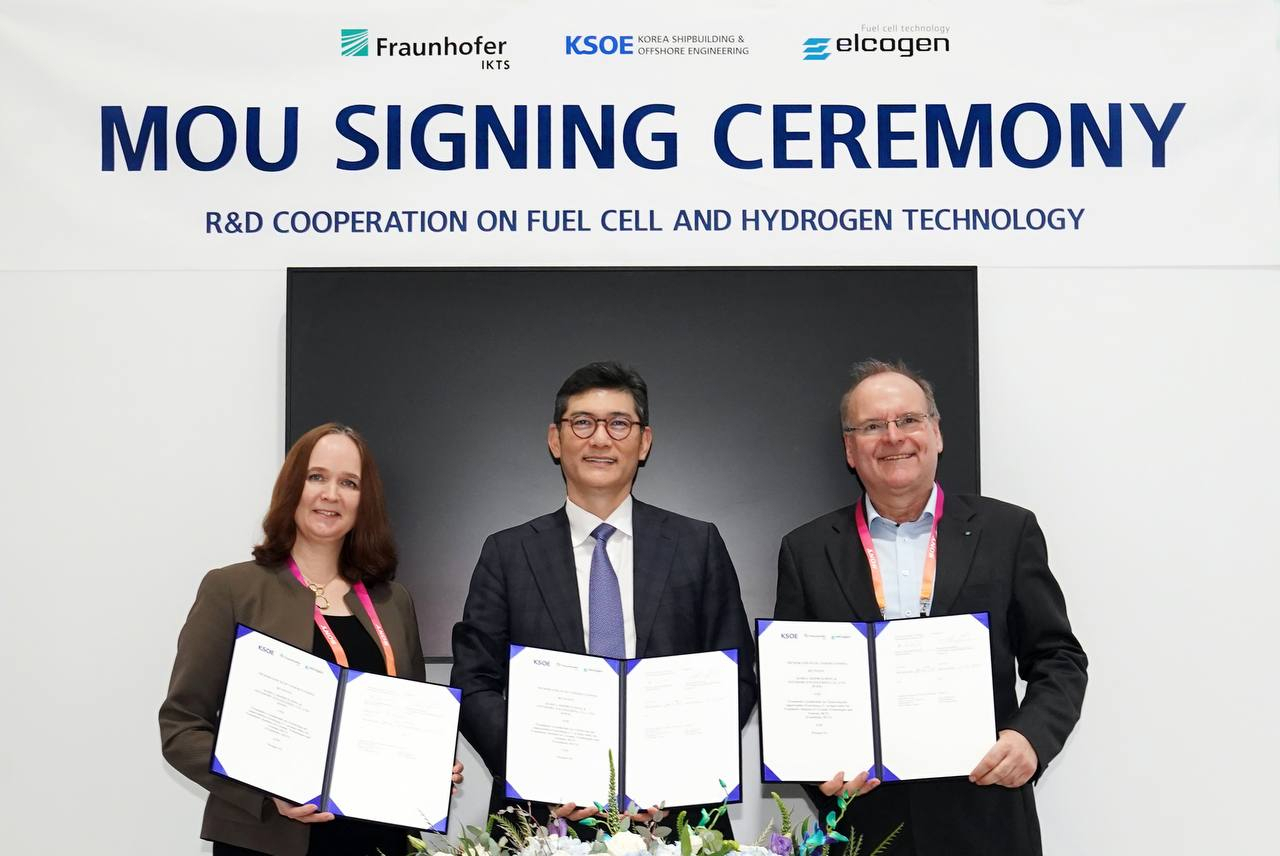Market Now
KSOE to develop large-capacity fuel cell systems for ships
 |
From left: Elcogen's Managing Director Hanna Grano-Fabritius, Kim Sung-joon, head of Korea Shipbuilding & Offshore Engineering’s future technology research center, and Alexander Michaelis, director of Fraunhofer IKTS, pose after signing a memoradum of understanding in Las Vegas on Jan. 8. (KSOE) |
Korea Shipbuilding and Offshore Engineering said Tuesday it has signed a memorandum of understanding with two European partners to develop large-capacity fuel cell systems for ships and other power generation.
The two partners include Germany’s Fraunhofer IKTS, the largest applied research institute in Europe, and Elcogen, a leading cell component manufacturer based in Estonia.
Under the partnership, KSOE, one of the world’s largest shipbuilders and an HD Hyundai subsidiary, will design large-capacity solid oxide fuel cell systems (SOFC) and test the prototypes with the two partners.
“HD Hyundai aims to establish a hydrogen value chain that encompasses the production, transport, storage and use of eco-friendly hydrogen,” said Kim Sung-joon, head of KSOE’s future technology research center.
Since February last year, KSOE and Fraunhofer IKTS have been continuing research on the new systems, the Korean shipbuilder said.
Adding to the SOFC partnership, KSOE also plans to secure eco-friendly hydrogen technology by leveraging IKTS’ water electrolysis technology and Elcogen’s parts production capacity.
SOFCs produce electrical energy by inducing a chemical reaction between oxygen and a variety of fuels such as hydrogen, natural gas, ammonia, methanol, and biofuel. They are suitable for ship engines and cogeneration as they are highly energy-efficient and can use waste heat generated from high-temperature operations of 600 to 1,000 degrees Celsius. SOFCs are considered the most advanced among all fuel cells developed to date.
By Kim So-yeon (sera13@heraldcorp.com)








